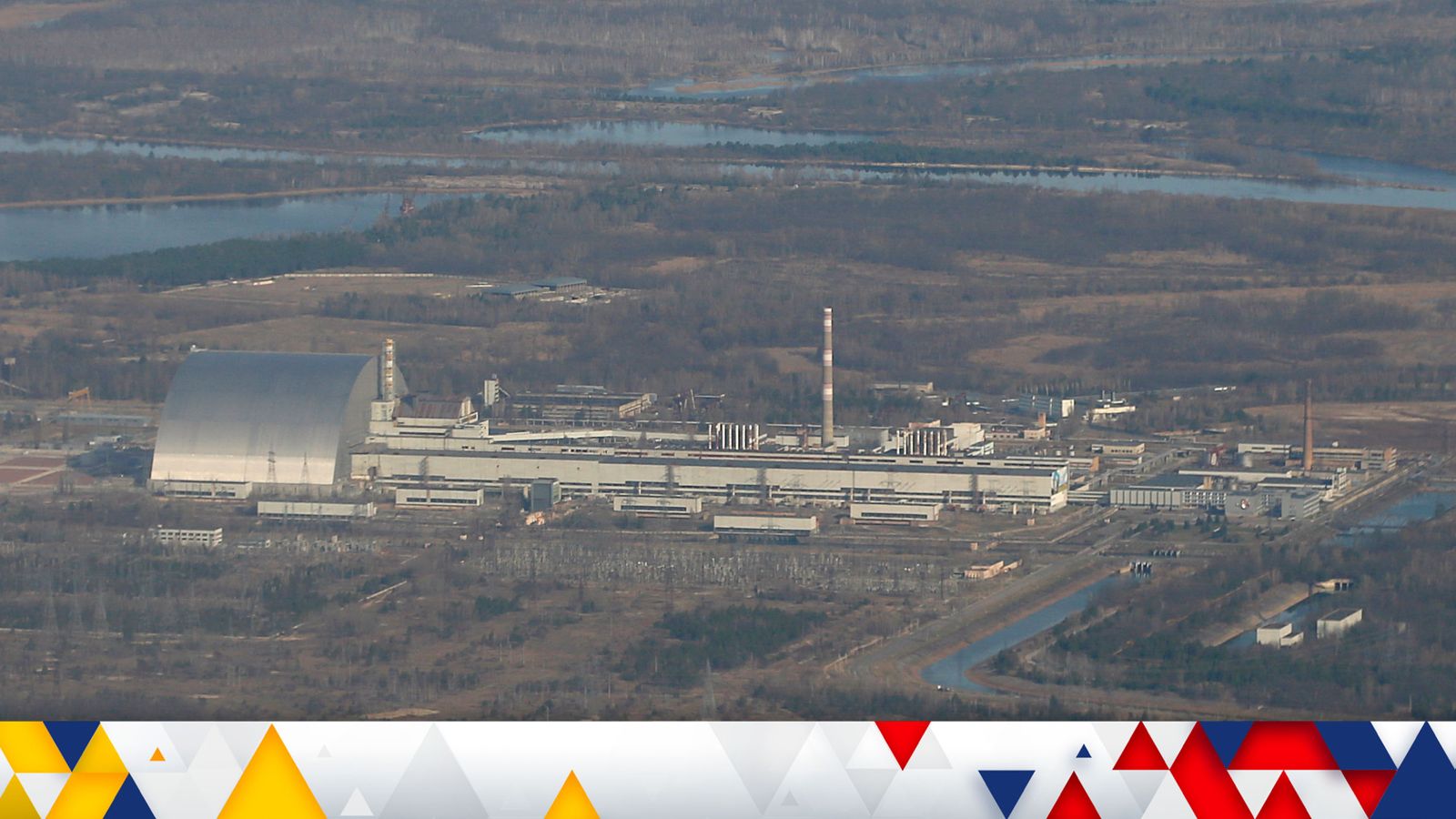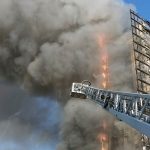Ukraine has told the United Nations nuclear watchdog that all contact with the power plant at Chernobyl has been lost.
The plant, the scene of the world’s worst nuclear accident in 1986, was taken over by Russian forces last week as part of their invasion of Ukraine.
Previously, staff at the plant communicated with Ukrainian regulatory authorities by email – but “all communications” were lost “the day after the Russian-controlled site lost all external power supplies”, according to the International Atomic Energy Agency (IAEA).
Follow live updates on Russia’s invasion of Ukraine
Both of the site’s power lines had been damaged when the Russians took over, effectively disconnecting it from the grid.
The IAEA said essential safety at the site should not be affected because the volume of cooling water in the spent fuel facility was enough to keep removing the heat without needing electricity.
Emergency diesel generators were powering vital safety systems but these would require more diesel to be delivered within a few days, the IAEA said.
Russia’s deputy energy minister, Yevgeny Grabchak, said on Thursday that power was restored but IAEA director general Rafael Mariano Grossi said the agency was trying to confirm this.
Mr Grossi also expressed concerns for workers at the plant, who have not been able to rest properly for many days, leaving them making decisions while tired, under pressure, and without communication facilities.
Any cut in emergency power would also leave them with the danger of monitoring the spent fuel storage pool without adequate ventilation and radiation monitoring.
Mr Grossi told reporters in Vienna on Thursday evening that the agency had “scheduled physical inspections” of Ukraine’s nuclear facilities, although he gave no further details.
He also said that the agency has a “number of remote monitoring devices” in operation, adding: “We are trying to make sure that we will not have again added suffering because of any radioactive release or anything having to do with nuclear facilities”.
There is no immediate danger of power cuts at the decommissioned plant, Mr Grossi said, adding that, even if there were, there would be “ample time” to restore the situation before anything dangerous could happen.
There are 15 nuclear reactors at four power plants in Ukraine, plus the defunct Chernobyl plant.
The IAEA said eight reactors are still operating, although there has been some damage to a Russian-controlled plant in Zaporizhzhia, with problems delivering spare parts and repair personnel.
Meanwhile, Russian forces bombed an educational facility that is home to an experimental nuclear reactor, according to Anton Gerashchenko, an adviser to Ukraine’s minister of internal affairs.
Mr Gerashchenko said that the Institute of Physics And Technology in Kharkiv contained “sources of radiation used for scientific purposes”, adding that any damage could cause radiation to be released.
A five-storey hostel nearby was also set on fire in the attack.






















